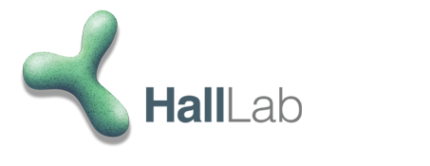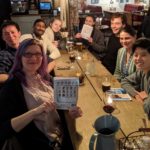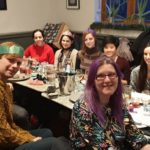Norfolk – Broadening My Knowledge: Adventure with the Hall Lab
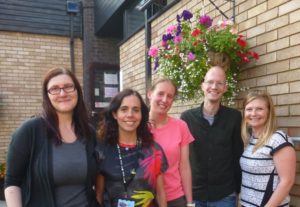
During summer 2017 I had the opportunity to visit the Hall Lab, based at the Quadram Institute in Norwich, to learn microbiome techniques to apply during my PhD in the Lamberton Lab at the University of Glasgow. I gained new skills, experienced a different lab environment, was inspired by different projects, met up with old friends and made many new. Thank you very much to everyone in the Hall Lab team for making me feel so welcome and for all your help. A big thanks in particular goes to Cristina and Lisa!
Lauren
It was a warm sunny evening when I landed in a tiny plane at a tiny airport in Norwich. After making acquaintances with some of the many rabbits hopping about the University of East Anglia campus, I turned in for the night ready to join the Hall Lab based at the Quadram Institute the following morning to begin training in new lab techniques.
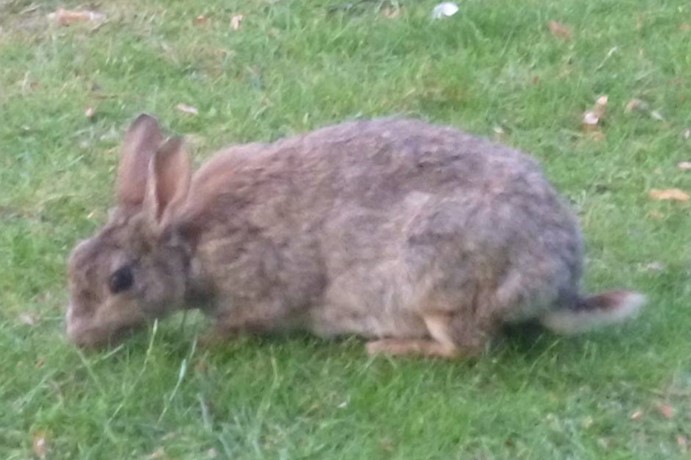
It was a very pleasant walk to the lab as another glorious morning blossomed. After signing in and meeting the team it was straight to work: learning a DNA extraction protocol specifically designed to maximise DNA yield from poo. Lots of tube labelling, centrifuging, buffer adding, incubating and note scribbling later the DNA samples were finally extracted. Success for day 1! I then progressed on to extracting a set of zoo poo samples, a vibrant array of colour and consistencies, to have a run through the technique myself.
Poo-haps you are wondering why we are doing this?
Well, both the Hall Lab and I are interested in studying the microbiome (all the bacteria, viruses, parasites and fungi living on or within us), in particular, the bacteria of the gut. Since many bacteria are excreted each day in our poo, poo bacterial composition provides an opportunity to study changes that may occur in our gut flora towards a variety of stimuli. For example, the Hall Lab is interested in understanding how early-life microbiota disturbances, through antibiotic administration for example, may impact our health, and the protective effects of Bifidobacterium colonisation against gut pathogens. Meanwhile, I am focusing on how schistosomes, other parasitic worms and their associated drug treatments may influence gut microbiota in areas such as rural Uganda. The overall idea is that through identifying and understanding microbiome relationships we may be able to derive novel therapeutics to treat a variety of diseases and improve treatment success using the currently available drugs.
Each bacterial species contains a unique genetic code, a bit like a signature, that means we are able to identify them. To achieve this we need to remove the DNA code from the bacteria and read it on a special sequencing instrument. However, the DNA we extracted earlier cannot be sent to be read immediately; it needs to be processed using a technique called 16S library preparation first and this is what I spent the remainder of my time at the Quadram Institute learning. Basically, during this step a unique barcode is added to each sample, a bit like a book’s ISBN, the sample DNA is then amplified – imagine photocopying the text repeatedly to get lots of copies – and the DNA is then cleaned. It required a lot of patience, concentration and pipette tips to learn, but Cristina was a great mentor and the samples were pooled and ready to submit for sequencing by the end of my last day of my first visit.
Three weeks later and I was returning to Norwich this time by train. To begin the week I learnt the tricks of the trade in performing 96 different PCR reactions at once before putting my skills learnt from the previous visit to the test. It was really useful to run through the protocol myself and have help at hand as required. My protocols are now completely covered in additional notes and green highlighter pen to provide me with lots of useful tips when I perform the procedures on my own. Now all at that remains is to put my new skills into practice back at the University of Glasgow.
My time in Norwich not only provided me with an opportunity to learn new lab techniques. It gave me the chance to catch up with a friend and make many more, learn about different projects through lab group meetings and seminars, eat cake on Fridays at café scientific and enjoy lunch outside with everyone in the sunshine! Outside the lab I was able to explore Norwich city, take pictures of rabbits and enjoy a walk around a small lake in the evenings.
Thanks to everyone in the Hall Lab team for all your help and making me feel so welcome! I very much look forward to collaborating with you again in the future.
 Beautiful views of the Norwich countryside
Beautiful views of the Norwich countryside
Lauren Carruthers
Lauren is a PhD student at the University of Glasgow studying schistosome – microbiome – drug interactions as part of the SCHISTO_PERSIST team led by Dr Poppy Lamberton. She graduated with a BSc Hons degree in Parasitology from the University of Glasgow in June 2016 and has previously worked on several projects researching trypanosome parasites.
